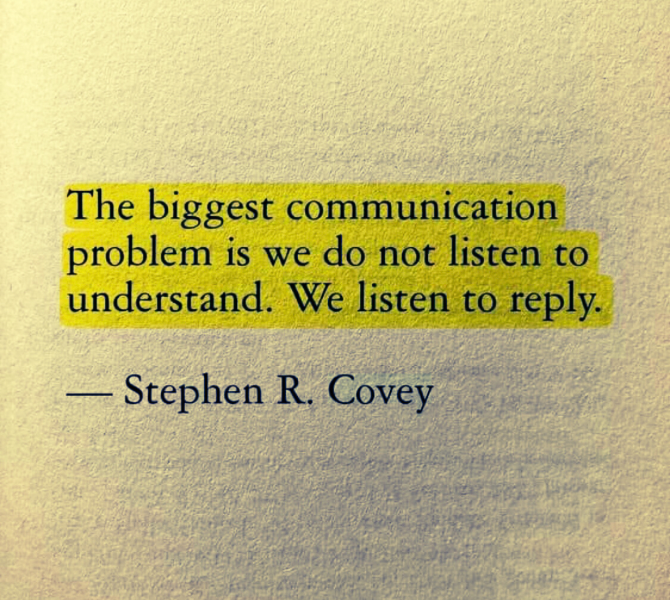Difficulty answering questions is a common issue. Do you stay silent, fumble a vague response, or reply inappropriately because you aren’t sure what was asked?
Listening to reply, not to understand, is well-acknowledged by speakers and experts alike. There are many explanations for this phenomenon. Yet, it’s seldom addressed how the physiological response to stress (fight or flight) clouds your thinking rendering you incapable of listening to the question.
Meetings, job interviews, difficult discussions, legal depositions, and presentations tend to draw out your inability to stay in the moment. So, rather than staying with the questioner, your attention shifts to preparing a response so the whole experience goes away. While the quality of your reply is definitely important, it’s also prudent that you maintain your presence as an active listener. As you will learn, some questions don’t need a lengthy, high-quality reply. Some questions are presented in a way that tries to elicit an answer to resolve an exact need, even if it’s implausible.
If answering questions is a weak point in your communication, try this: A moment where you’d prefer to run out of the room signals to attune to the type of question. Some types of questions only need a one-word or short-sentence reply. Other types of questions necessitate a longer answer. Understanding the need underneath the question will also help you to get to the focal point. Even while experiencing speaking anxiety, you can maintain your composure to listen to the type of questions, mainly closed and open-ended questions.
Anxiety about making a good impression clouds your ability to think clearly. Listen to where the questioner wants your input, especially when it’s a simple yes or no. You don’t want to be ‘that person’ in the meeting who speaks for 5 minutes when a simple reply, I agree or I disagree, is sufficient.
Do you need help to manage your speaking anxiety? Please schedule a consult at www.calendly.com/laurabresee
